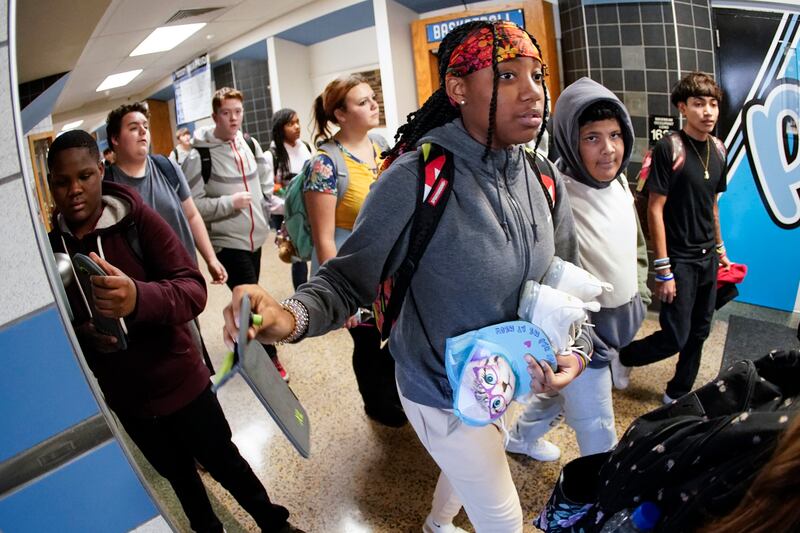The Los Angeles Unified School District Board of Education passed a proposed student cellphone and social media ban on Tuesday, impacting over 420,000 students. The ban passed with a 5-2 vote and would amend the current policy that already bans cellphone usage during class hours and social media use for non educational purposes, CNN reported.
Los Angeles Unified School District board member Nick Melvoin led the efforts in getting the proposal passed and implemented. Melvoin is concerned by cellphone and social media’s effects on students.
The proposal follows other efforts to limit cellphone usage in the state, stemming from a 2019 law that allows school districts to impose limits on students’ cellphones in school, per CNN.
“Our students are glued to their cellphones, not unlike adults. They’re surreptitiously scrolling in school, in class time, or have their head in their hands, walking down the hallways,” Melvoin said, per the L.A. Times.
“They’re not talking to each other or playing at lunch or recess because they have their AirPods in.”
The vote comes a day after the publishing of an essay by U.S. Surgeon General Dr. Vivek H. Murthy regarding the detriment of kids’ mental health due to social media in which he called for mental health warning labels on social media, as earlier reported by the Deseret News.
Proponents of the proposal cite waning mental health, less in-person interaction and Murthy’s 2023 advisory addressing a possible link between social media and the teen mental health crisis.
According to Tuesday’s meeting agenda, “Research indicates that excessive cellphone use impacts adolescents mental health and well-being and is associated with increased stress, anxiety, depression, sleep issues, feelings of aggression, and suicidal thoughts.”
Further, they argue “while headphones and earbuds are tools to promote focus and concentration in the classroom, students use them with their cellphones all day and may become reliant on them — stifling student interaction with their peers and limiting classroom engagement.”
They cite a 2016 Common Sense Media study that found half of all teens had reported having an addiction to their phones and another from 2023 that found 97% of 11- to 17-year-olds reported using their phones during school hours.
As argued in the meeting, academic performance and mental health improve with cellphone and social media limits. The gains in academic performance, research shows, “were equivalent to an additional hour of instructional time per week.”
The district must now seek input from teachers, students, parents, experts and labor partners in formulating a policy update to be presented to the public within 120 days and to be implemented by January 2025, as mandated by the board.
The policy must meet several guidelines, including differentiation by grade-level and device, age-appropriateness, and have consideration for cellphone storage methods.
Supporters of the ban cite some of the benefits mentioned in the Tuesday meeting, like better academic performance and fewer adverse mental health effects, while many parents are concerned their children won’t have important access to communication with them.
One parent, AnneMarie Fulton, wrote in a post to the Facebook group Parents Supporting Teachers, explaining her reticence.
“I don’t want her to not have access to call me if needed,” she wrote, per the L.A. Times. “I’m strict on phone usage anyway, but taking that ability to contact away from a child doesn’t exactly seem right.”
An elementary school principal echoed Fulton’s concerns, saying that while the devices “cause a lot of unnecessary drama on campuses,” she needs “my high school student to have hers” for her walk home from school.


